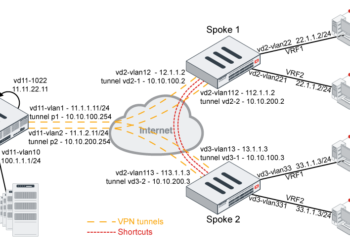Cybersecurity Compliance Requirements in India – What You Need to Know
A complex set of laws and regulations related to cybersecurity exists in India where cybersecurity is governed by a number of statutes, rules and sector-specific regulations. As a business in India, they need to follow these regulations, so as to comply with and secure their organizations’ digital assets.
Indian Cybersecurity Laws at a Glance
There is only one kind of primary law which many apply against Cyber Security, that is IT Act, 2000. This act lays down a law for encrypting data so as to protect them from any cybercrime and any non-authorized use. The IT Act is enforced by the Indian Computer Emergency Response Team (CERT-In) for managing and controlling cyber incident response-relevant activities.
Another of the central acts and laws is The Indian Penal Code (IPC) in 1860 which penalize the classical criminal acts (theft, falsification, defamation…) in case where they would be perpetrated through the network. Companies should maintain the electronic records securely as per the new Companies (Management and Administration) Rules, 2014 and also maintain reasonable security practices and procedures to protect the sensitive data.
Required Compliance Key Requirements
- Data Protection: Personal data, as defined under the IT Act must be kept secure and confidential by organisations. Implementing appropriate security measures, including but not limited to General Data Protection Regulation (GDPR) compliant security includes the protection of personal data from being compromised, damaged, lost, or exposed.
- Incident Reporting: If a cyber security incident occurs, within a given timeframe the organization must report it to the appropriate authorities. This includes, financial institutions have to report an incident within 2 to 6 hours of detection, likewise insurance companies to the Insurance Regulatory and Development Authority within 48 hours.
- Sector-Specific Regulations: Several industries, specifically the financial services sector fall under various sector-specific regulations such as in the case of the banks, the establishment of provisions to monitor intrusions, attacks and fraudulent transactions in the technical facility and mandatory reporting to the DoT in case of occurrence of such incidents.
- Cybersecurity Standards: As per the sectorial regulations and guidelines, it is crucial for the organizations to maintain the cybersecurity standards. For instance, the National Critical Information Infrastructure Protection Centre (NCIIPC) has control over cybersecurity for critical information infrastructure (CII) sectors like transport, telecoms, banking and finance.
- Employee Training: Security Training helps increase awareness amongst employees about password management, using personal devices and adopting a number of security measures.
Plan to Maintain Compliance
- Develop a Cybersecurity Policy: Create a detailed cybersecurity policy that will exhibit your organization’s cybersecurity protocols, incident response plan, as well as what your employees are in charge of.
- Adopt Reasonable Security Practices: If you make a conscious effort to adopt reasonable security practices to protect information, including encryption of sensitive data, access control mechanisms, and network segregation.
- Conduct Regular Security Audits: Security audits help to identify vulnerabilities and ensure compliance with the relevant legal and regulatory obligations, as will be explained in step 6.
- Teach Employees Security: Regularly train employees about security best practices, such as password management, using personal devices and security, and so on.
- Stay On-the-ball with Regulatory Changes: Be in the know of the changes or updates to stay updated as trends happen with regulation development so you will remain compliant as a healthcare organization.
Advantages of Complying
- Security of Digital Assets: Compliance guarantees that your organization’s digital assets i.e. sensitive information, intellectual property is secure and kept confidential.
- Reputation and Trust: Compliance relates to how dedicated organizations are to their cybersecurity and data protection which helps build and maintain trust with customers and stakeholders.
- Decreased Risk: By protecting your like fraud and hacking, Compliance decreases the risk of cyber attacks, data breaches, and reduces economic loss and publicity loss.
- Regulation Compliance: Your organization must maintain compliance with regulations to avoid fines and penalties being levied against your organization.
How P J Networks Can Help
P J Networks provides cybersecurity and innovation solutions to safeguard an organization’s digital assets and to ensure that all regulated mandates are met. Our services include:
- Cyber Security Policy Development: Establishing written policies that describe standards and procedures for protecting the organization and its information, including incident response plans and requirements and employee responsibility.
- Cybersecurity Audits & Assessments: Our regular audits and assessments secure us to detect gaps and making us compliant with all regulatory requirements.
- Employee Training: We train our staff regularly on how to best protect themselves when operating online – be it a secure password or appropriate use of work-related or their own electronic devices.
- Incident Response Planning: We systematically build incident response plans to make sure your organization is ready to effectively react to an unexpected cybersecurity situation.
- Cybersecurity Consulting: We provide reliable consulting services to keep your organization in the know about regulatory shifts and ensure alignment with the necessary cybersecurity regulations.
It is necessary for your company to be aware and compliant with Indian cyber security laws and legislations so that you keep your online assets secure, your reputation afloat and decrease the possibility of cyber attacks and data breaches.




